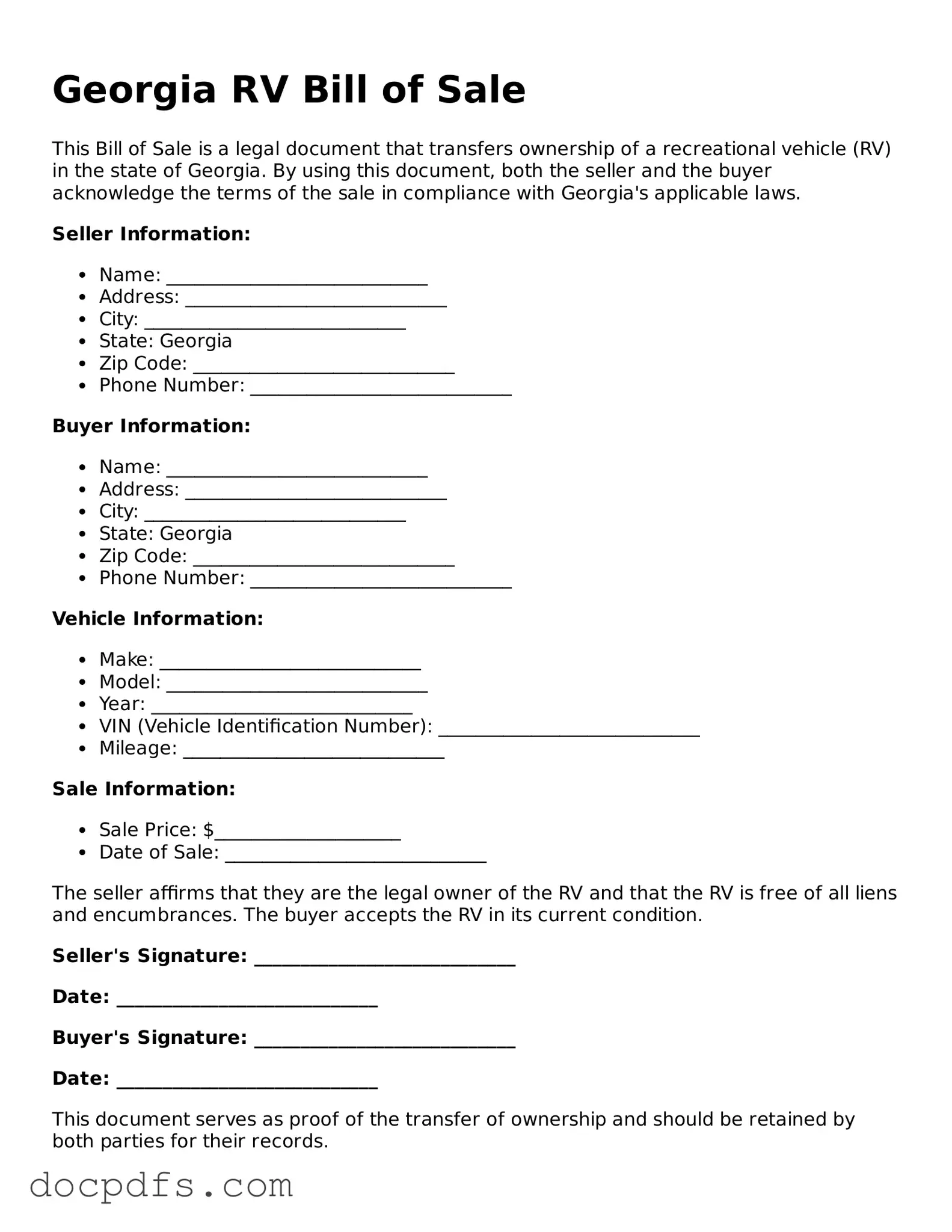What is an RV Bill of Sale in Georgia?
An RV Bill of Sale is a legal document that records the sale and transfer of ownership of a recreational vehicle (RV) from one party to another. This document serves as proof of the transaction and includes important details about the RV, the buyer, and the seller.
Why do I need an RV Bill of Sale?
The RV Bill of Sale is essential for several reasons:
-
It provides legal proof of ownership transfer.
-
It can be used for registration and titling purposes.
-
It protects both the buyer and seller by documenting the terms of the sale.
To ensure the document is complete and valid, include the following details:
-
Full names and addresses of both the buyer and seller.
-
Detailed description of the RV, including make, model, year, and Vehicle Identification Number (VIN).
-
Sale price and payment method.
-
Date of the transaction.
-
Signatures of both parties.
Is the RV Bill of Sale required for registration in Georgia?
Yes, the RV Bill of Sale is typically required when registering the vehicle in Georgia. It serves as proof of ownership and is needed to complete the registration process at the Department of Revenue.
Can I create my own RV Bill of Sale?
Absolutely. You can create your own RV Bill of Sale as long as it includes all the necessary information and complies with Georgia's requirements. Many templates are available online to assist you.
Do I need to have the RV Bill of Sale notarized?
In Georgia, notarization is not a requirement for the RV Bill of Sale. However, having the document notarized can provide an additional layer of authenticity and may be beneficial in case of disputes.
What if the RV has a lien on it?
If there is an existing lien on the RV, it is crucial to disclose this information in the Bill of Sale. The seller should ensure that the lien is satisfied before the sale is completed. This protects the buyer from potential legal issues in the future.
How do I obtain a copy of the RV Bill of Sale?
Once the RV Bill of Sale is completed and signed by both parties, each party should retain a copy for their records. It is advisable to keep this document in a safe place, as it may be needed for future reference.
What should I do if I lose my RV Bill of Sale?
If you lose your RV Bill of Sale, you can create a new document that includes the same information and is signed by both parties again. If possible, obtain a witness or notarization to strengthen the new document's validity.
Can I use a Bill of Sale from another state?
While you can use a Bill of Sale from another state, it is best to use a Georgia-specific form. This ensures compliance with local laws and requirements, making the registration process smoother.

